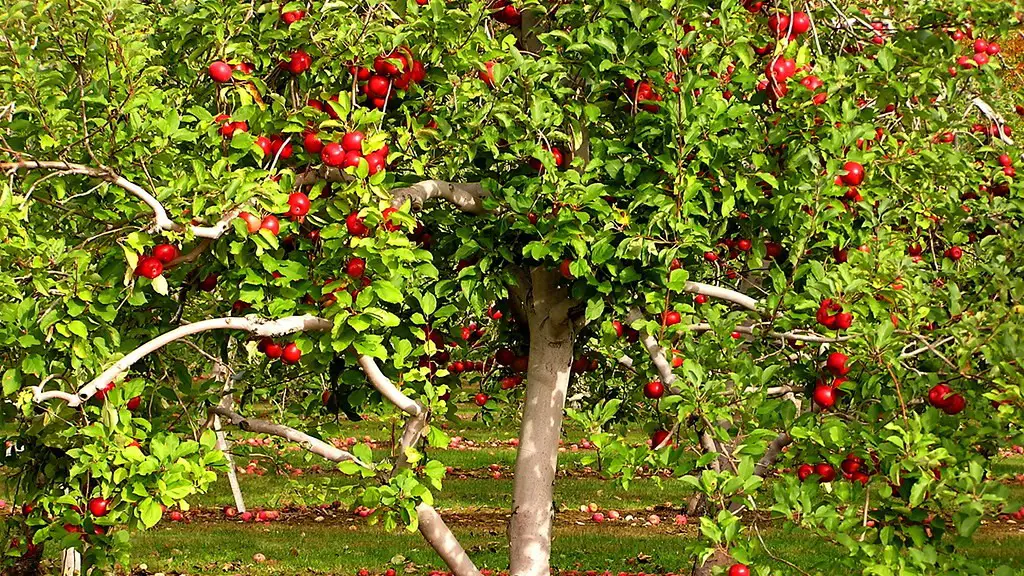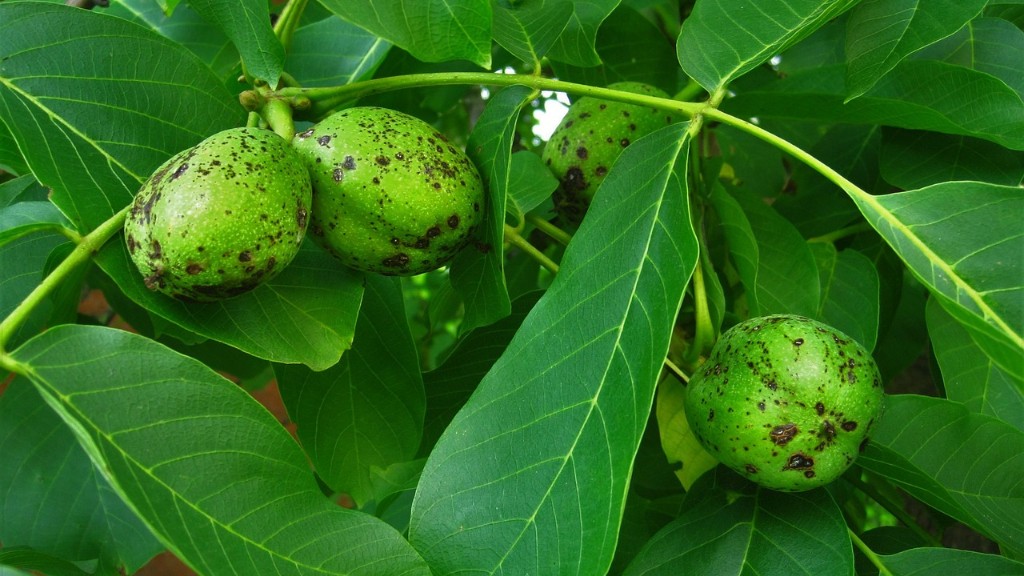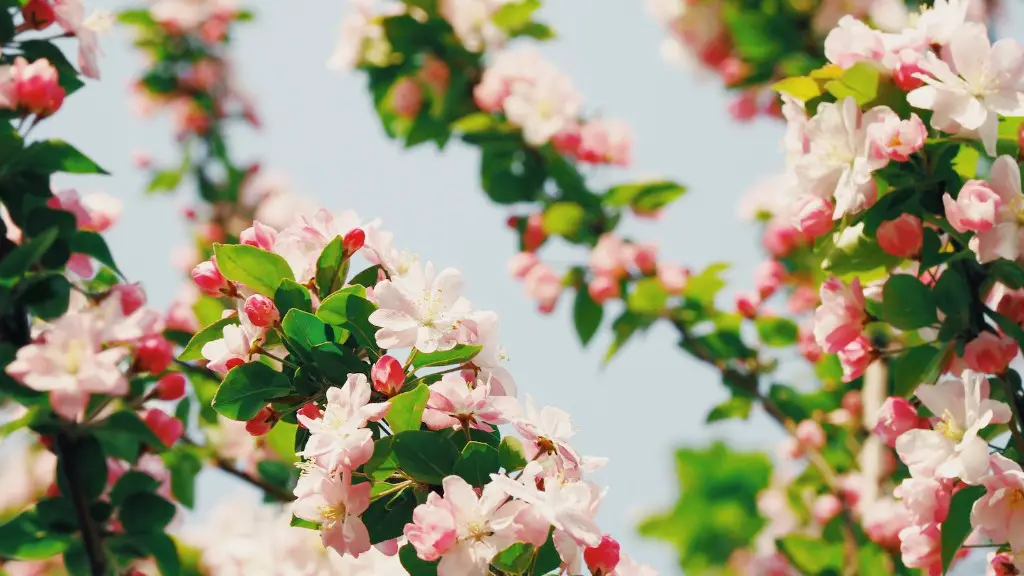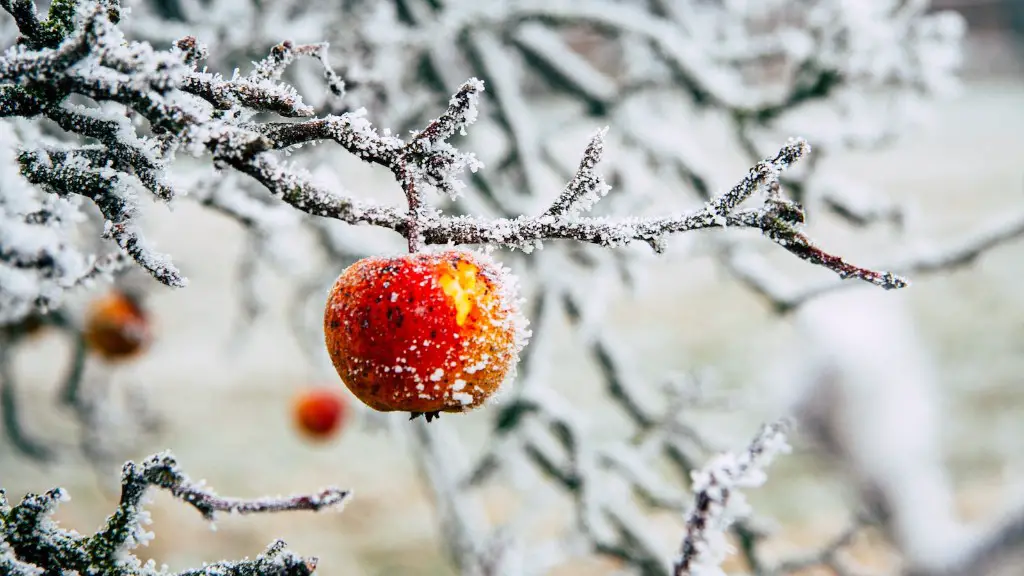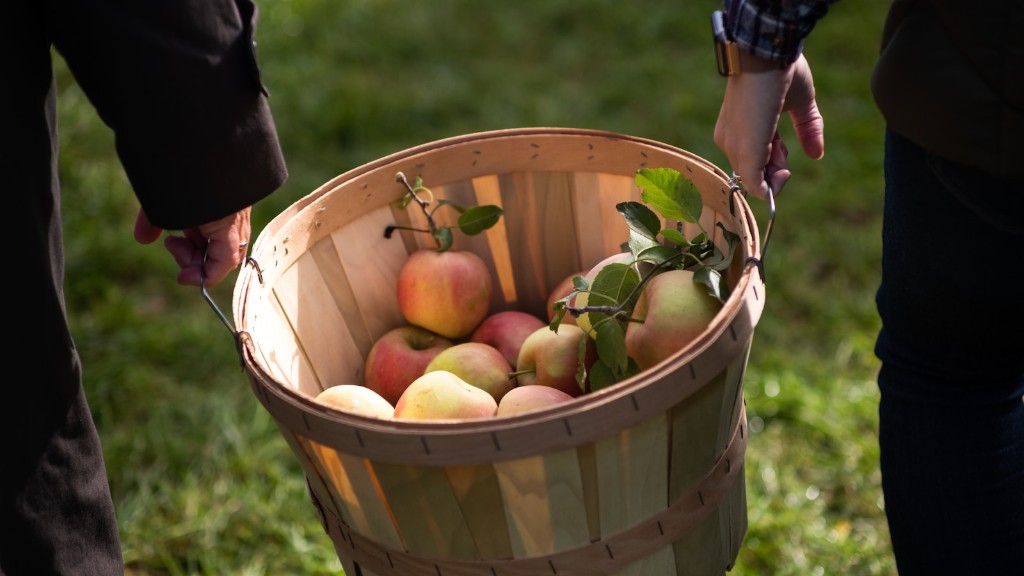It is common for Apple Trees to show signs of dropping fruit in the spring months. Apple trees have a tendency to overproduce young fruit buds which die off each spring. This is a natural process that the tree undergoes in order to get the best yield. In some cases, however, an apple tree may drop many of its mature and healthy apples before they have a chance to ripen. This can be an alarming sight for a homeowner and can often be a sign of a problem such as disease, pest infestation, or other environmental conditions.
Typically, if your apple tree has reached maturity and is healthy, it should be producing a good crop of apples each year. If your tree is not producing a good crop, then it may be time to investigate further and observe what circumstances might be contributing to its dip in production. It may be a result of insufficient nutrients in the soil, or too much water or heat during the summer months.
Another likely cause of an apple tree dropping apples is that it may be a victim of an infection or pest infestation, such as codling moths. These pests may damage the apples and cause them to drop, leaving the tree weakened and unable to properly produce a good crop. If an apple tree is infested with insects, it’s important to act quickly and use the right kind of pesticide to get rid of them.
It’s also important to pay close attention to the soil in which your apple tree is planted. The soil should be well-drained and have plenty of organic matter in it that provides essential nutrients to the tree. If the soil is poor, the tree may not be receiving the proper nutrition it needs in order to produce a good crop of fruit. It’s important to fertilize the tree properly each season in order to nourish it and help it to produce a good yield.
Finally, it’s important to pay attention to the apple tree’s environment. If the tree is receiving too little or too much sunlight or water, the apples may drop prematurely and in abundance. It’s important to use the right amount of water and ensure the tree is planted in a sunny location with little or no shade.
Environmental Factors
Environmental factors like temperature, sunlight, and water will all affect the health of an apple tree. Too much or too little of any of these can cause the apple tree to drop its fruits prematurely. It’s important to pay close attention to the environmental conditions in which an apple tree is planted, in order to make sure it is receiving the necessary conditions for proper production.
Temperature is a key factor in determining an apple tree health. Temperature plays a large role in pollinating flowers and fruit production. Temperatures that are too high or too low can lead to fruit drop. Additionally, changes in temperature can cause blooms to open and close prematurely, leading to potential fruit drop in some scenarios.
The amount of sunlight an apple tree receives is also an important factor. While an apple tree will thrive with plenty of full-sun, too much direct sunlight can be damaging to the tree, leading to leaf burn and other issues which can limit production capacity. Properly positioning an apple tree in a well-drained sunny spot is key.
Finally, the amount of water a tree receives will affect its ability to produce and keep fruit. An apple tree needs 1-2 inches of water per week, and too little or too much can cause issues, potentially causing a tree to drop its fruit.
Pest Problems
Pests can be a major problem for apple trees and can lead to major fruit drop. Common pests like codling moths, leafhoppers, coddling worms and mites can all infest an apple tree and damage both flowers and fruits, leading to premature fruit drop. If your apple tree is exhibiting signs of pests, it’s important to take action quickly and use the proper pesticide to eliminate them from the tree.
Codling moth larvae feed on and tunnel through the fruit of apple trees, often causing them to drop prematurely. Leafhoppers and mites also feed on the fruit and foliage of a tree, leading to a weakened state that can cause fruit and leaves to drop. Finally, codling worms will bore into the stem and core of the apple, weakening it and potentially causing it to drop prematurely.
It’s important to take steps to identify the type of pest infesting the tree, as well as take steps to prevent them from infesting the tree and damaging its health. Pruning the tree and keeping debris clear from underneath the tree is key, as well as examining the fruit for signs of damage. Lastly, the use of proper pesticides can help to eliminate pests and improve the tree’s health.
Nutritional Deficiencies
Insufficient nutrition is another common culprit when it comes to an apple tree dropping its fruit. A tree that is not receiving the proper nutrients in its soil will not be able to properly produce and hold onto its fruits. It’s important to regularly examine the soil in which the tree is planted and to ensure that it has enough of the essential nutrients needed to properly produce and keep its apples.
Nutrients like nitrogen, phosphorus, and potassium are all necessary for successful apple production. A soil that lacks one or more of these essential nutrients will not be able to properly produce and sustain healthy fruit. Additionally, a soil that is too wet or dry is not conducive to proper apple production either.
Organic matter is also key when it comes to providing nutrients to an apple tree. Adding compost and other organic matter to the soil around an apple tree will help to make sure it receives the essential nutrients needed for it to produce a healthy crop of fruit. It’s important to add an inch or two of organic matter to the soil at least once per year.
Fertilizer
Fertilizing an apple tree is key to keeping it healthy and productive. It’s important to use the right fertilizers and fertilize at the right times of the year. The types of fertilizer used can vary based on the kind of tree, but some of the most common ones are nitrogen and potassium. Additionally, adding bone meal, fish emulsion, or compost-enriched fertilizer can also be beneficial.
While fertilizing is a key part of apple tree care, it’s important not to overdo it. Too much fertilizer can cause a tree to produce an abundance of fruit, leading to potential fruit drop as well. Additionally, fruits from over-fertilized trees can be more prone to disease and pests. It’s important to use the right fertilizer, in the right amount, at the right times.
Pruning
Pruning an apple tree is essential for proper production and health. Pruning can help to promote the production of fruit and prevent fruit drop by controlling the number of flowers a tree produces. Pruning should be done in late winter, when the tree is dormant, in order to ensure that it will produce a good crop of apples in the spring.
Pruning is an important step that can not only help to reduce fruit drop, but it can also help to strengthen the tree and reduce the chances of disease and pests. Pruning can also help to improve airflow, sunlight penetration, and soil drainage, which are all factors which will improve the health of an apple tree and lead to better production.
Pruning an apple tree should be done carefully and thoughtfully. Removing too much or too little can cause pre-mature fruit drop or prevent the tree from producing a good crop. Additionally, pruning too close to the trunk can cause wounds on the tree, increasing the chances of disease and infection.
Conclusion
The reasons for an apple tree dropping its apples can range from environmental conditions, to pest infestations, nutritional deficiencies, and more. It’s important to pay close attention to your apple tree in order to identify what might be causing the fruit drop and address the issue quickly. The use of the right care and methods, such as proper pruning, fertilizing, controlling pests, and improving soil, are all key to maintaining a healthy apple tree and preventing fruit drop.
